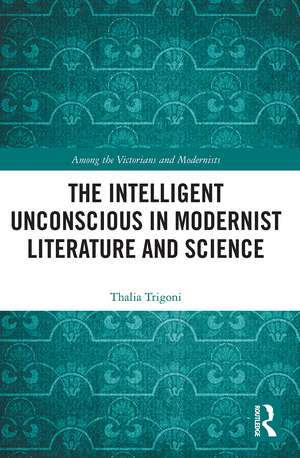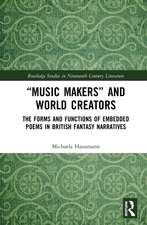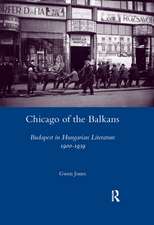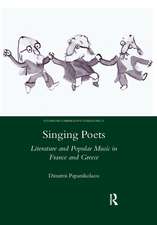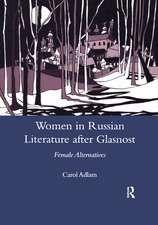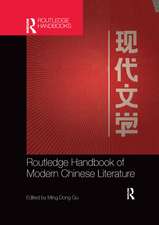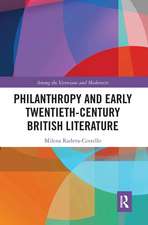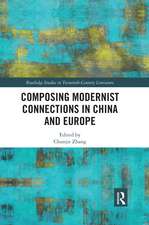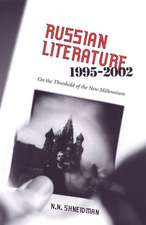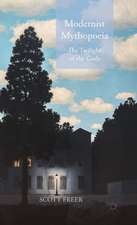The Intelligent Unconscious in Modernist Literature and Science: Among the Victorians and Modernists
Autor Thalia Trigonien Limba Engleză Paperback – 30 mai 2022
Shortlisted for the Modernist Studies Association (MSA) First Book Prize and for the 2021 British Society for Literature and Science Book Prize.
| Toate formatele și edițiile | Preț | Express |
|---|---|---|
| Paperback (1) | 389.66 lei 6-8 săpt. | |
| Taylor & Francis – 30 mai 2022 | 389.66 lei 6-8 săpt. | |
| Hardback (1) | 1000.45 lei 6-8 săpt. | |
| Taylor & Francis – 17 noi 2020 | 1000.45 lei 6-8 săpt. |
Din seria Among the Victorians and Modernists
-
 Preț: 357.20 lei
Preț: 357.20 lei - 5%
 Preț: 272.65 lei
Preț: 272.65 lei - 9%
 Preț: 866.12 lei
Preț: 866.12 lei -
 Preț: 310.84 lei
Preț: 310.84 lei - 9%
 Preț: 1106.41 lei
Preț: 1106.41 lei -
 Preț: 310.47 lei
Preț: 310.47 lei - 9%
 Preț: 936.37 lei
Preț: 936.37 lei - 18%
 Preț: 1001.70 lei
Preț: 1001.70 lei - 18%
 Preț: 299.67 lei
Preț: 299.67 lei - 18%
 Preț: 893.90 lei
Preț: 893.90 lei -
 Preț: 390.76 lei
Preț: 390.76 lei - 20%
 Preț: 261.73 lei
Preț: 261.73 lei - 26%
 Preț: 763.39 lei
Preț: 763.39 lei - 18%
 Preț: 892.33 lei
Preț: 892.33 lei - 18%
 Preț: 1000.89 lei
Preț: 1000.89 lei -
 Preț: 410.46 lei
Preț: 410.46 lei -
 Preț: 389.66 lei
Preț: 389.66 lei -
 Preț: 385.36 lei
Preț: 385.36 lei - 18%
 Preț: 1000.27 lei
Preț: 1000.27 lei -
 Preț: 310.01 lei
Preț: 310.01 lei - 18%
 Preț: 1001.07 lei
Preț: 1001.07 lei - 17%
 Preț: 259.92 lei
Preț: 259.92 lei - 18%
 Preț: 1007.54 lei
Preț: 1007.54 lei - 20%
 Preț: 271.14 lei
Preț: 271.14 lei - 18%
 Preț: 309.02 lei
Preț: 309.02 lei - 18%
 Preț: 1000.27 lei
Preț: 1000.27 lei - 18%
 Preț: 836.89 lei
Preț: 836.89 lei - 16%
 Preț: 299.06 lei
Preț: 299.06 lei - 18%
 Preț: 296.95 lei
Preț: 296.95 lei - 18%
 Preț: 1000.27 lei
Preț: 1000.27 lei - 18%
 Preț: 1001.07 lei
Preț: 1001.07 lei - 18%
 Preț: 999.46 lei
Preț: 999.46 lei -
 Preț: 389.66 lei
Preț: 389.66 lei - 26%
 Preț: 763.95 lei
Preț: 763.95 lei - 18%
 Preț: 1002.95 lei
Preț: 1002.95 lei - 18%
 Preț: 1001.07 lei
Preț: 1001.07 lei - 16%
 Preț: 297.79 lei
Preț: 297.79 lei
Preț: 389.66 lei
Nou
Puncte Express: 584
Preț estimativ în valută:
74.58€ • 81.04$ • 62.69£
74.58€ • 81.04$ • 62.69£
Carte tipărită la comandă
Livrare economică 21 aprilie-05 mai
Preluare comenzi: 021 569.72.76
Specificații
ISBN-13: 9780367550905
ISBN-10: 0367550903
Pagini: 222
Dimensiuni: 152 x 229 x 12 mm
Greutate: 0.45 kg
Ediția:1
Editura: Taylor & Francis
Colecția Routledge
Seria Among the Victorians and Modernists
Locul publicării:Oxford, United Kingdom
ISBN-10: 0367550903
Pagini: 222
Dimensiuni: 152 x 229 x 12 mm
Greutate: 0.45 kg
Ediția:1
Editura: Taylor & Francis
Colecția Routledge
Seria Among the Victorians and Modernists
Locul publicării:Oxford, United Kingdom
Cuprins
- Introduction: The Intelligent Unconscious in the Modernist World
- The Psychology of Unconscious Consciousness
- D.H. Lawrence on the Intelligent Unconscious and the Allotropic State of Being
- Virginia Woolf’s Stream of (Un)Consciousness: The Ontology of Unconscious Androgyny
- Feeling Unconscious Thoughts in T. S. Eliot’s Criticism and Poetry
- Conclusion: From Modernism to 21st Century Cognitive Science
Notă biografică
Thalia Trigoni is a Postdoctoral Research Fellow at the Department of English Studies, University of Cyprus. She holds a PhD in English from the University of Cambridge and an MA in American Literature from King’s College, University of London. She has published on D.H. Lawrence, William James, E.S. Dallas, Salvador Dali and Thomas De Quincey in Routledge, Palgrave MacMillan, Bloomsbury, Springer and De Gruyter.
Recenzii
Shortlisted for the Modernist Studies Association (MSA) First Book Prize and for the 2021 British Society for Literature and Science Book Prize.
"This is an exciting study, offering fresh and challenging readings of Lawrence, Woolf, and others who not only wrote about but also theorised modules of intelligent unconscious." (British Society of Literature and Science)
"This is an exciting study, offering fresh and challenging readings of Lawrence, Woolf, and others who not only wrote about but also theorised modules of intelligent unconscious." (British Society of Literature and Science)
Descriere
This book reassesses representations of the unconscious in the early twentieth century, primarily the works of D. H. Lawrence, Virginia Woolf and T.S. Eliot, authors who engaged the notion of the intelligent unconscious, reworked it and offered it for the consumption of the general populace.
